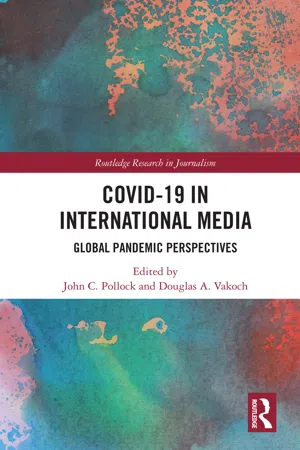1 Coronavirus response asymmetries in the Global North and Global South
New challenges and recommendations
Phillip Santos
Introduction
The explosive, devastating, and expansive impact of the new coronavirus induced COVID-19 pandemic on the complete horizon of modern human existence is by now a matter of common knowledge. Subsequent to its outbreak, most governments introduced extraordinary measures aimed at arresting, containing, and eliminating the deadly new coronavirus. Key among these were, on the one hand, those measures that severely restricted human mobility, intimacy, right to assembly, and economic activity among other things. On the other hand, and more significantly, are the different ways in which governments from across the divide between the Global North and Global South stepped in to mitigate the impact of the pandemic on their populations. These extraordinary developments reveal three old but still exigent issues about the unique vulnerabilities and position of the Global South, in particular Africa, relative to highly developed countries in the Global North.
First, that the way the global economy is currently organized exposes both the underclasses or marginalized social groups in the Global North and, more significantly, the economically disenfranchised masses of the Global South, to the extreme effects of global crises—health or otherwise. Second, that global media in highly developed societies still dominate the flows of information across the world with consequential implications on the ideas and information shaping responses to crises in the Global South. Third, that news media and opinion leaders in the Global North continue to portray Africa in ethnocentric, patronizing, and condescending colonist discursive frames. COVID-19 has also shown that vulnerability to viral pandemics is universal although their effects are suffered and experienced disparately by people across the world depending on their sociocultural practices and values as well as their economic circumstances. Moreover, it is now also axiomatic that as long as there is human mobility across national borders, regions, and continents, everyone is as safe as the weakest members of society across the world. Therefore, the baseline argument in this chapter is that without addressing the pervasive asymmetries in the distribution and circulation of economic as well as cultural resources across the globe, the human species remains wholly vulnerable to the mortal effects of viral pandemics as well as other catastrophic crises now and in the future.
Consequently thus, it seems logical and prudent if not ineluctable that countries in the Global North synergistically foster cooperation and solidarity in capacitating both the economic stamina and communications infrastructure of the Global South, in particular Africa, which is the weakest part of this region. If not out of a sense of moral obligation, this could be done at least for the former’s own self-preservation. Either way, the human species will be left better positioned and prepared to collectively confront, contain, eliminate, and preclude potentially catastrophic global or localized crises in the future. This chapter draws on the dependency paradigm and the New World Information and Communication Order (NWICO) debates to bring attention to the unfinished business toward the achievement of an egalitarian, inclusive, and just global community, which is imperative to building national and regional capacities as well as mutual cooperation between countries of the Global North and the Global South, in response to any future epidemics, pandemics, and other crises.
The dependency paradigm and NWICO debates
The COVID-19 pandemic has shown the fundamental importance of quality, reliable, and credible information, and economic capacity to respond to arising challenges before, during, and after a viral pandemic or crisis situation. Accurate, relevant, and useful information is a key vector in the formulation of effective and contextually informed strategies to arrest, contain, and eliminate the virus behind any pandemic. In the same vein, superoptimal economic resources are equally important in capacitating any preparatory work before the onset of a pandemic, protecting and supporting commercial activity during and after the pandemic, and in providing socioeconomic and psychological support to ordinary citizens during and after the pandemic. However, African countries and the rest of the Global South are severely disadvantaged in respect of each of these critical aspects. But the situation could have been better if the issues raised by dependency theorists and the Non-Aligned Movement (NAM) during the NWICO debates from the 1960s onward had been taken seriously and addressed.
The dependency paradigm in development praxis emerged as a critical response to the modernization claim that countries in the Global South were underdeveloped primarily because of “the lack of necessary ingredients for development, whether they are cultural, psychological-sociological, economic, or institutional” (Chew and Lauderdale 2010, 1). It blamed the internal dynamics of developing countries for their lack of development (see Smith 1996; O’Byrne and Hensby 2011). But the theory could not account for “gaps in growth between countries, the lack of autocentric self-sustaining development, the particularized economic specialization of some countries, and the persistent impoverishment of most parts of the globe” (Chew and Lauderdale 2010, 2). It is these gaps that the dependency paradigm sought to explain and address through self-valorizing redemptive formulations. For instance, dependency scholars challenged the modernization paradigm’s focus on internal conditions as barriers to development and instead directed attention toward the operation of global structural factors and vectors as causes of underdevelopment (see Frank 1966; Dos Santos 1970; Furtado 1971; Cardoso 1972). As Frank argues, “contemporary underdevelopment is in large part the historical product of past and continuing economic and other relations between the satellite underdeveloped and the now developed metropolitan countries” (2010, 8).
In add...
